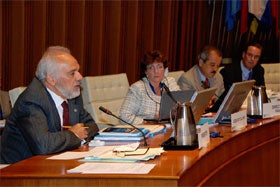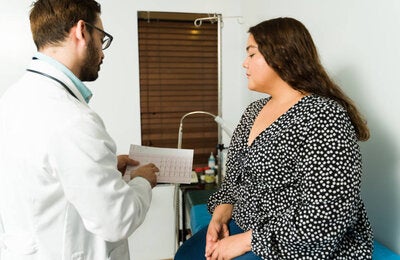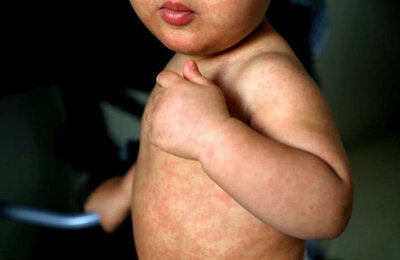
 Health leaders from throughout the Western Hemisphere today approved a new regional strategy to reduce harmful substance use and mitigate the negative health affects of such use, during the 50th Directing Council meeting of the Pan American Health Organization (PAHO).
Health leaders from throughout the Western Hemisphere today approved a new regional strategy to reduce harmful substance use and mitigate the negative health affects of such use, during the 50th Directing Council meeting of the Pan American Health Organization (PAHO).
Washington, D.C., September 28, 2010 (PAHO) — Health leaders from throughout the Western Hemisphere today approved a new regional strategy to reduce harmful substance use and mitigate the negative health affects of such use, during the 50th Directing Council meeting of the Pan American Health Organization (PAHO).
 The new Strategy on Substance use and Public Health focuses on prevention, early intervention, harm reduction, treatment, rehabilitation, social reintegration, and health systems management. By aiming to reduce the demand for substances, the strategy complements supply-control and related criminal justice efforts.
The new Strategy on Substance use and Public Health focuses on prevention, early intervention, harm reduction, treatment, rehabilitation, social reintegration, and health systems management. By aiming to reduce the demand for substances, the strategy complements supply-control and related criminal justice efforts.
"Substance use is a very important issue that has an impact on economic and social development as well as violence and family stability," said Dr. Luiz Galvão, Manager of PAHO's Area of Sustainable Development and Environmental Health. "It is a much bigger issue than just health."
While substance abuse is more common in developed countries of the Americas, it has a disproportionate impact on low- and middle-income countries. Harmful use of substances is often concentrated in urban areas and particularly affects youths and other vulnerable groups.
A variety of interventions have proved effective in addressing harmful substance use and dependence, among them medically supervised use of opioids for opioid dependence, needle exchange programs, and broad-based prevention programs that target teenagers across a variety of settings.
Despite the promise of these interventions, people with substance use problems are often denied medical care or have difficulty obtaining it. In some cases, services are offered only in isolated areas or in asylums, often far from patients' families and communities. In other cases, patients are assigned to involuntary treatment without due process. Homeless people and other marginalized groups have particular difficulty getting access to services.
The new strategy approved today calls on countries to:
- Make substance use a higher priority for public health action and devote priority efforts to reducing the gaps between needs and available treatment.
- Address the social factors that influence substance use by increasing social protection, promoting sustainable development, and improving access to quality health services.
- Promote access to care and treatment for substance use for the entire population by strengthening services using a primary health care approach and through integrated service delivery networks and other models that do not rely on residential hospitals.
- Strengthen legal frameworks to protect the human rights of people with substance use disorders, and enforce laws on substance use without negatively impacting public health.
- Promote the involvement of sectors other than health in initiatives to prevent the initiation of substance use by children and adolescents, and to reduce stigma and discrimination against people with substance use disorders.
- Encourage the involvement of the community, former substance users, and family members in policymaking, prevention and treatment activities (e.g., through mutual help organizations).
Strengthen partnerships between the public sector and other sectors, involving nongovernmental organizations, academic institutions, and key social actors in policymaking and planning on substance use. - Devote sufficient financial resources to both supply-control and demand-reduction efforts.
Dr. Galvão said that recent progress in psychiatric reform had put PAHO member countries in a "better position to carry out a strategy focused on prevention and treatment." He noted that health authorities across the Region had participated in the development of the new strategy.
The PAHO Directing Council meets each year to set priorities for Pan-American cooperation in health and to guide PAHO's technical cooperation programs in its Member States.
PAHO was established in 1902 and is the world's oldest public health organization. It works with all the countries of the Americas to improve the health and quality of life of the people of the Americas and serves as the Regional Office for the Americas of the World Health Organization (WHO).
For more information please contact Donna Eberwine-Villagrán, Knowledge Management and Communication Area, tel (202) 974-3122, fax (202) 974-3143.
Links:



